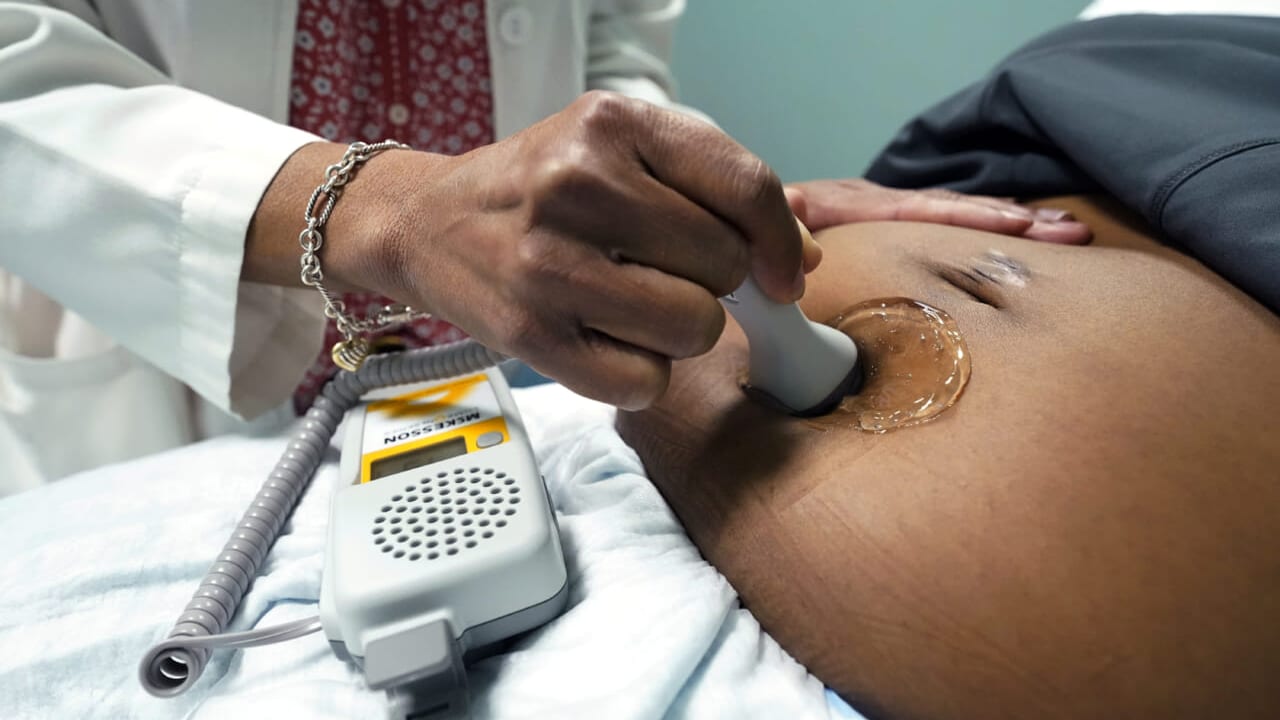We bring news that matters to your inbox, to help you stay informed and entertained.
Terms of Use and Privacy Policy Agreement
WELCOME TO THE FAMILY! Please check your email for confirmation from us.
Politics
Rafa Kidvai, director with If/When/How’s Repro Legal Defense Fund, tells theGrio that surveillance of people of color “is not just an accident.”
Abortion rights advocates fear women, especially those from marginalized communities, will stop seeking medical care due to health care workers alerting law enforcement about patients who have self-managed abortions.
The practice will scare women “from feeling like they can confide in and share information with their doctors” who are there to “help them and take care of them,” Lauren Johnson, director of the American Civil Liberties Union’s Abortion Criminal Defense Initiative, told theGrio.
According to the National Institutes of Health (NIH), a self-managed abortion takes place when an individual terminates a pregnancy usually by nontraditional means such as taking medication, using vitamins, herbs, alcohol, or other toxic substances. They are often carried out by individuals experiencing obstacles to abortion care, including people of color, those in low-income communities, and people living in either abortion-restrictive states or in areas located near medical facilities.
Rafa Kidvai, director of If/When/How’s Repro Legal Defense Fund, told theGrio some people are “reticent to talk to medical providers and get the medical treatment that they need because they cannot trust the people who can meet their needs.”
If/When/How’s Repro Legal Defense Fund recently worked on a case where Lizelle Gonzalez, a Texas resident, was charged with murder over a self-managed abortion. Gonzalez took misoprostol, an abortion drug usually paired with mifepristone, to terminate her pregnancy at 19 weeks.
Gonzalez was treated at a local hospital and was discharged after experiencing abdominal pain. She visited the hospital the next day and doctors performed a caesarian section to deliver a stillborn baby.
The doctors tipped off the district attorney’s office about Gonzalez’s self-managed abortion, which then led to the murder charges that were later dropped.
Under Texas state law, a pregnant person cannot be criminally prosecuted for carrying out their own abortion.
Johnson of the ACLU told theGrio that since a self-managed abortion is not a “criminal act” the doctors in this case should not have informed law enforcement of Gonzalez’s abortion.
Johnson added that circumstances that require a doctor to report to law enforcement by law are “very narrow.”
Gonzalez alleges in the lawsuit that due to the arrest, spending two days in jail and after feeling the impacts of the media covering her case, she suffered harm.
Clarifying how media coverage can harm those accused of a crime, Kidvai of If/When/How’s Repro Legal Defense Fund said, “Oftentimes information from the prosecutor’s office or law enforcement is leaked to the media in order to shape the public narrative of the case.”
“That shaping is never to be trusted,” added Kidvai. “Lizelle’s case is highly emblematic of this exact problem … prosecutors made false representations in order to pursue her case.”
Gonzalez filed a $1 million lawsuit against Starr County District Attorney Gocha Ramirez for erroneously charging her with murder.
In the meantime, Ramirez and the State Bar of Texas reached an agreement for the prosecutor to pay a $1,250 fine and for his law license to be placed in a probated suspension status for 12 months.
Johnson of the ACLU told theGrio that Ramirez’s punishment will not prohibit him from continuing to prosecute cases.
Kidvai said it is “devastating and terrifying” that prosecutors are not held accountable in any “real way and continue to function” despite “the amount of violence, harm, and cruelty that prosecutors are able to inflict upon communities in the name of justice.”
Gonzalez’s case took place prior to the U.S. Supreme Court overturning Roe v. Wade in 2022, granting states the authority to enact their own abortion laws. Since then, many states across the nation have enacted abortion bans, including Texas, Idaho, Florida, Georgia, and Alabama, that have incorporated restrictions that have disproportionately impacted women of color.
Johnson of the ACLU told theGrio that cases like Gonzalez’s “will continue to take place” across the country.
Kidvai of If/When/How’s Repro Legal Defense Fund said marginalized communities are disproportionately targeted by prosecutors and law enforcement in abortion cases because “that’s the purpose of criminalization.”
Their aim is “break apart communities and to inflict further trauma upon marginalized people,” Kidvai argued.
Kidvai added that people of color are “surveilled in different ways.”
“Who gets reported is not just an accident. It’s not random,” Kidvai continued. “It’s about people’s biases … that lead to why people are reported in the first place.”
Ashlee Banks
Ashlee Banks
Gerren Keith Gaynor
TheGrio Lifestyle
Ashlee Banks
Ashlee Banks
Ashlee Banks
Ashlee Banks
Never miss a beat: Get our daily stories straight to your inbox with theGrio’s newsletter.
STREAM FREE
MOVIES, LIFESTYLE
AND NEWS CONTENT
ON OUR NEW APP

